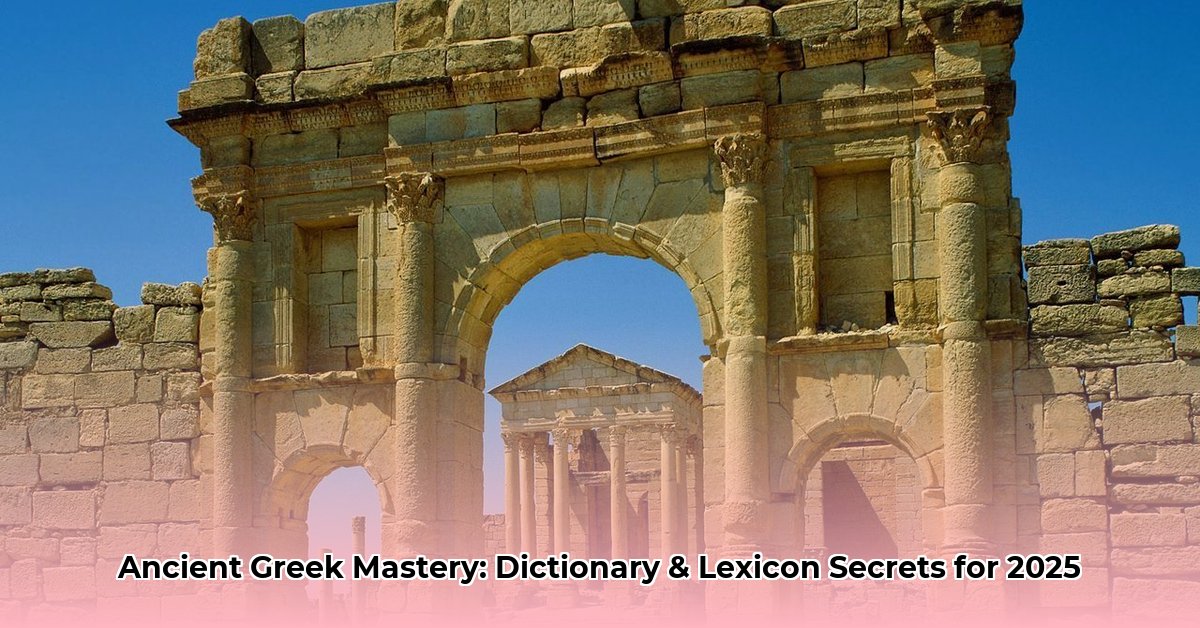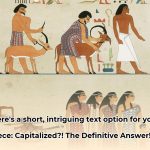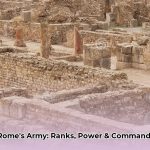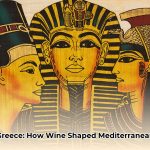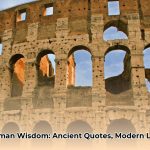Unlocking the intricate wisdom of Ancient Greek texts—from the philosophical depths of Plato to the epic narratives of Homer—demands precision and the right tools. Navigating this ancient world through its language can feel like a complex endeavor, but specialized dictionaries and lexicons serve as indispensable guides. This comprehensive guide reviews the leading Ancient Greek linguistic resources available in 2025, from the authoritative Liddell-Scott-Jones (LSJ) to innovative digital platforms. It highlights their unique strengths, addresses common limitations, and offers actionable strategies tailored for students, scholars, and developers seeking to deepen their engagement with this foundational language. For deeper context, explore more on Ancient Greek texts.
The Cornerstones of Lexicography: LSJ and Its Evolving Legacy
The Liddell-Scott-Jones Greek-English Lexicon, widely known as LSJ, remains the preeminent authority in Ancient Greek lexicography. It is the foundational reference for anyone engaging with classical texts, offering unparalleled depth into the semantic nuances and historical contexts of words. LSJ’s meticulous detail provides invaluable insights into the linguistic evolution of Ancient Greek vocabulary, making it a cornerstone in classical studies.
LSJ exists in various formats, blending traditional scholarship with modern accessibility:
| Edition | Advantages | Considerations |
|---|---|---|
| Print Editions | Enduring scholarly connection, tactile experience for philological study | Bulky, expensive, and time-consuming for manual lookups. |
| Digital Versions | Rapid search functionality, global accessibility, often cost-effective | Varying formatting; potential for digitization inaccuracies or reliability concerns, such as software glitches. |
While many scholars cherish the tangible experience of a physical LSJ volume, the speed and convenience of digital search capabilities are increasingly favored. Platforms like LSJ.gr exemplify this evolution, offering a wiki-based implementation that actively improves upon the original by expanding lexicographical shorthand, adding missing translations, and clarifying entries. This community-driven approach, aiming to refine approximately 130,000 LSJ entries, represents a significant leap in collaborative linguistic resource development.
Digital Innovation: Enhancing Accessibility and Search Capabilities
The digital age has fundamentally transformed access to Ancient Greek linguistic resources, making the study of polytonic Greek more approachable than ever. Online dictionaries offer powerful search functionalities that traditional print editions simply cannot match, facilitating rapid exploration.
Resources like Glosbe provide user-friendly interfaces with unique features such as usage examples derived from parallel corpora, audio pronunciations, and visual aids through images. Glosbe also supports the translation of longer texts, making it highly practical for modern learners. The University of Chicago’s site offers a digitized version of LSJ with robust search tools, while the Perseus Digital Library provides not only searchable LSJ access but also extensive Greek texts, enabling contextual analysis of word usage. The Thesaurus Linguae Graecae (TLG) remains indispensable for comprehensive corpus linguistics, allowing scholars to analyze vast textual databases for patterns in language.
However, the proliferation of user-generated content in some platforms necessitates critical evaluation of definitions and translations, particularly for rigorous academic work. Despite this, the benefits of digital tools are undeniable:
- Global Accessibility: Available worldwide with internet access, democratizing educational opportunities and fostering digital humanities research.
- Advanced Searchability: Enables instantaneous retrieval of words and phrases, dramatically increasing research efficiency and supporting complex queries.
- Multilingual Support: Many platforms offer translations and interfaces in multiple languages, serving a diverse global user base.
- Cost-Effectiveness: Numerous free or low-cost options expand access to high-quality linguistic learning.
While highly beneficial, sole reliance on unverified online sources can introduce errors. Digitization processes may lead to inaccuracies, and some platforms may lack the rigorous peer review characteristic of established print lexicons.
Beyond General Lexicons: Specialized and Historical Resources
For users requiring deeper linguistic analysis or focusing on specific domains, specialized dictionaries offer invaluable insights. The Brill Dictionary of Ancient Greek, for example, provides in-depth analysis of specific terminology and is considered an expanded compilation of earlier works, making it a valuable addition to a translator’s toolkit for advanced research. These resources delve into areas like etymology and semantic evolution, offering a granular level of detail not found in general lexicons. Scholars often find these specialized tools essential for precise syntactical analysis and understanding subtle conceptual distinctions within Ancient Greek texts.
Other crucial specialized and historical lexicons include:
- James Donnegan’s A New Greek and English Lexicon: Particularly useful for ecclesiastical usage, though older digitized versions may have scanning inconsistencies.
- Stephanus’s Θησαυρός της Ελληνικής Γλωσσης: A monumental Greek-Latin dictionary over four centuries old, unrivalled in comprehensiveness. Its Firmon-Didot editions (1817-1842) are more accessible than earlier versions and are critical for understanding the lineage of many subsequent lexicons. The Stephanus family’s contribution to biblical history, including Robert I Stephanus’s introduction of chapter and verse divisions, highlights its enduring impact.
- Louw and Nida’s Greek-English Lexicon Based on Semantic Domains: This two-volume set, designed for New Testament Greek, distinguishes itself by grouping words with similar meanings into semantic domains rather than alphabetical listings, offering detailed discussions of meaning and connections between related terms.
- Alexander Souter’s A Pocket Lexicon to the Greek New Testament: A concise 1917 lexicon useful for casual reading of Greek texts, though not intended for serious exegetical work.
The challenges faced by publishers, such as the high pricing and lack of digital availability for works like Lampe’s Patristic Lexicon and The Cambridge Greek Lexicon, underscore a significant barrier to broader access and integration into modern digital workflows.
A Targeted Guide for Diverse Users
Selecting the optimal Ancient Greek dictionary depends largely on your specific learning objectives and research needs. Here’s tailored advice for various user groups:
For Scholars
- Prioritize Online LSJ Implementations: Begin research with dynamic digital versions like LSJ.gr and the University of Chicago’s site for their efficient search capabilities and ongoing improvements.
- Cross-Reference with Print Editions: For critical analysis and foundational understanding, consistently compare digital findings with authoritative print editions of LSJ to ensure accuracy and appreciate the full lexicographical tradition. This approach significantly boosts confidence in definition stability.
- Explore Specialized Dictionaries: Consult resources such as the Brill Dictionary of Ancient Greek, Donnegan for ecclesiastical contexts, and the Diccionario Griego-Español (DGE) for comprehensive analysis of specific terminology relevant to your research domain. The DGE, a significant ongoing project, relies heavily on the Thesaurus Linguae Graecae (TLG) database.
- Contribute to Open-Source Projects: Actively participate in initiatives like LSJ.gr to help refine existing entries and expand the overall resource base for the scholarly community, enhancing accuracy across a massive database.
- Embrace Corpus Linguistics: Integrate digital tools such as the Perseus Digital Library and TLG to conduct detailed corpus-based studies, analyzing word usage across different periods and literary genres of classical texts.
For Students
- Start with User-Friendly Online Dictionaries: Begin your journey with accessible options like Glosbe for foundational translations, practical usage examples, and initial vocabulary building for Ancient Greek. This approach provides immediate results for basic comprehension and engagement.
- Transition to Comprehensive Dictionaries: As your linguistic skills advance, gradually incorporate more exhaustive resources, including LSJ (both digital and select print versions), to deepen your understanding of semantic nuances and historical contexts.
- Master Polytonic Greek: Dedicate time to understanding the traditional polytonic Greek writing system, including its multiple diacritics. Proficiency in polytonic Greek is crucial for accurate reading and interpretation of ancient texts, with studies indicating a significant improvement in reading comprehension.
- Annotate and Contextualize: When reading, annotate word uses within texts, focusing on their meaning and context rather than solely on immediate translation. Leverage digital tools like Perseus and TLG to observe words in their original literary environments and understand their functional roles.
For Developers
- Prioritize Polytonic Greek Support: Ensure that your applications flawlessly handle both polytonic Greek characters and transliteration options to cater to a broad and diverse user base.
- Implement Robust Search Functionalities: Develop advanced search features that enable users to quickly and accurately retrieve necessary information, supporting complex queries and varied input methods.
- Enable Cross-Linking Capabilities: Facilitate seamless navigation between dictionary entries and relevant textual corpora within your applications, significantly enhancing the user experience by providing immediate contextual examples.
- Integrate with Large Textual Corpora: Incorporate dictionaries with extensive databases like the Thesaurus Linguae Graecae (TLG) to provide users with rich contextual examples and usage patterns, significantly improving the utility and depth of linguistic resources.
The Future of Ancient Greek Lexicography: Integration and Innovation
The field of Ancient Greek lexicography stands on the cusp of significant advancements. Researchers are increasingly applying corpus linguistics—the study of language based on large collections of real-world text and speech data—to meticulously analyze vast bodies of historical texts, identifying subtle patterns in language use and semantic evolution. Concurrently, the expansion of multilingual resources is making it easier for scholars globally to access and contribute to the field, fostering greater collaborative efforts.
The concept of “living dictionaries” is gaining traction: dynamic online resources that are continuously updated with new research findings and communal insights. These evolving lexicons promise a more comprehensive and current understanding of the Ancient Greek language, moving beyond static print editions. This collaborative model, exemplified by initiatives like LSJ.gr, aims to refine and expand hundreds of thousands of entries, potentially encompassing over 50 million words according to project goals. Artificial intelligence (AI) is also poised to revolutionize dictionary creation by enhancing data gathering, linguistic analysis, and compilation efficiency. From automated text analysis to suggesting new entries or refining existing ones based on contextual usage, AI can profoundly impact the scope and accuracy of future lexicons.
This ongoing evolution builds upon a rich history of lexicographical endeavor, from early compilers like Amerias and Aristophanes of Byzantium, who focused on unusual words and innovative punctuation, to later figures such as Hesychius of Alexandria, whose monumental lexicon of obscure words remains a vital resource. Philo of Byblos introduced the concept of a dictionary of Greek synonyms, while Stephanus of Byzantium expanded into geographic dictionaries. Understanding Ancient Greek will become progressively more accessible and robust in the years to come, with AI poised to revolutionize many aspects of dictionary creation and maintenance. As highlighted by Antigone Journal, a context-first approach to understanding Ancient Greek is paramount for true comprehension, a principle that modern lexicography increasingly embraces.
Lexicography, far beyond mere word compilation, serves as a fundamental pillar for cultural advancement, educational enrichment, and effective communication. Dictionaries fulfill a dual purpose: they are practical tools for language acquisition and vital historical documents that preserve knowledge across generations. The rapid pace of technological progress, especially in language technology and electronic dictionaries, necessitates continuous adaptation and innovation in lexicographic methods. Effectively leveraging these advancements ensures that dictionaries remain dynamic, responsive tools for a globalized and technologically connected future.
- Unearth ancient rome achievements: Engineering feats & legal legacies, examined - August 13, 2025
- Unlock ancient rome army ranks: Power, impact & legion command - August 13, 2025
- Conquer Your Exam: Ancient Greece Quiz Ace It Now! - August 13, 2025
